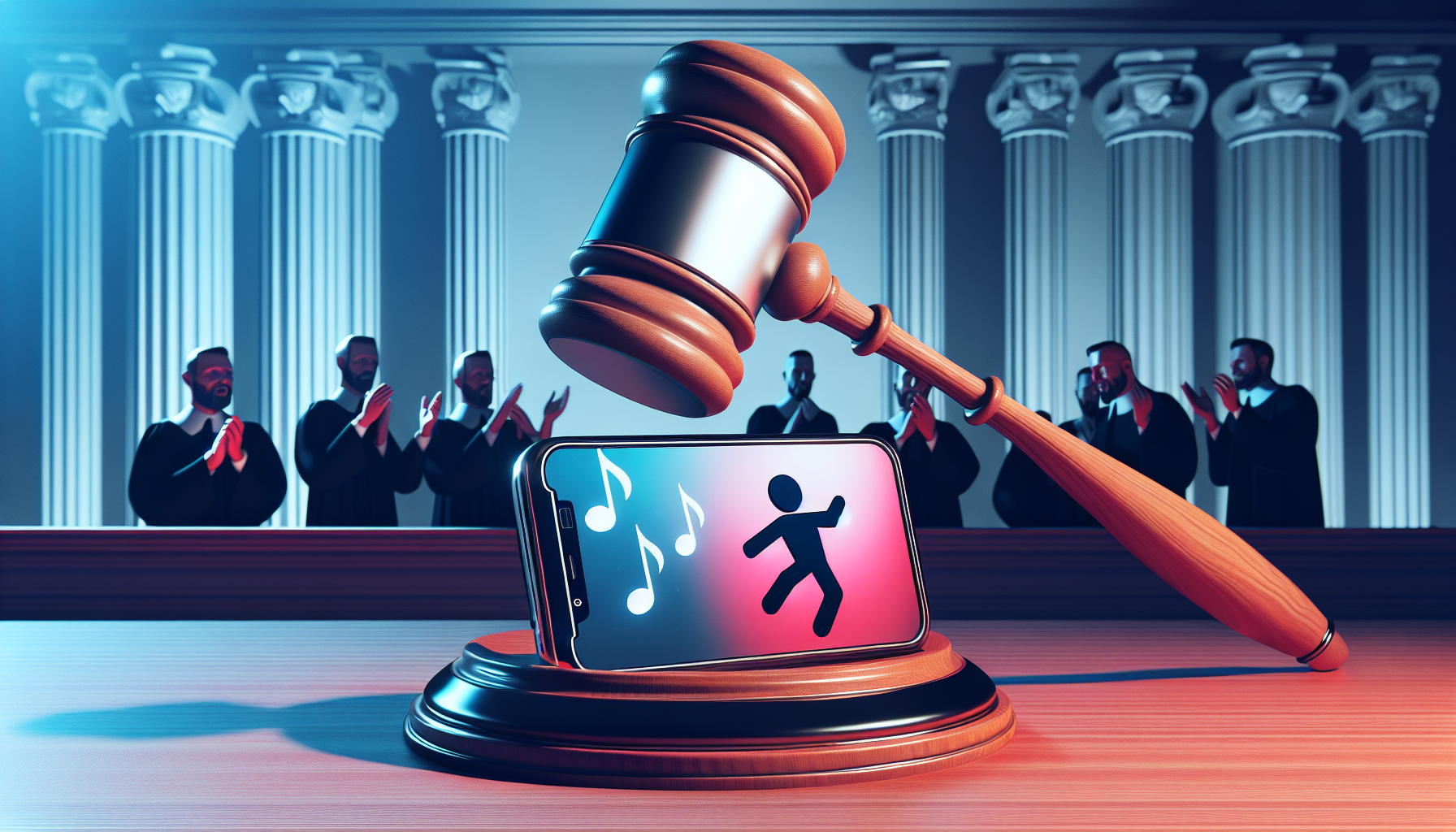
Supreme Court Ruling on TikTok Ban: Implications for Users and National Security
The Supreme Court has issued a significant ruling, supporting the Biden Administration on a debated law that may result in a TikTok ban in the United States. This judgment has ignited discussions regarding national security, freedom of speech, and the direction of social media platforms. Below is a summary of the crucial aspects and their implications for TikTok users and the larger tech environment.
The Supreme Court’s Ruling: A Concern for National Security
In a unanimous ruling, the Supreme Court endorsed legislation mandating ByteDance, the parent company of TikTok, to divest the app or face a ban within the U.S. The court’s unsigned statement indicated that TikTok’s “scale and vulnerability to control by foreign adversaries, combined with the extensive sensitive data the platform gathers, warrant different treatment to tackle the Government’s national security issues.”
This ruling arises amid escalating tensions between the U.S. and China, as well as enhanced examination of technology firms owned by Chinese entities. The Biden Administration contends that TikTok presents a considerable national security threat due to its data harvesting practices and possible connections to the Chinese government.
What’s Next? TikTok’s Prospects in the U.S.
TikTok has stated that without assurances from the Biden Administration to service providers, the app will cease operations on January 19. This would result in more than 170 million American users losing access to the platform. CEO Shou Chew has shown readiness to cooperate with the government to reach a solution, but time is running short.
Compounding the uncertainty, incoming President Donald Trump has alluded to a potential reprieve for TikTok. Trump has mentioned the possibility of postponing the enforcement of the ban or considering alternative options, like allowing TikTok more time to comply with the law. However, no specific plans have been put forward.
The Significance of Free Speech and Digital Rights
The Supreme Court’s ruling has faced backlash from advocates for free speech and digital rights. Organizations such as the ACLU and the Electronic Frontier Foundation argue that a TikTok ban could set a perilous precedent, enabling the government to silence platforms under the pretense of national security.
Patrick Toomey, deputy director of the ACLU’s National Security Project, commented, “The Supreme Court’s decision is profoundly disheartening, permitting the government to shut down an entire platform and infringe upon the free speech rights of countless individuals based on alarmism and conjecture.”
Critics emphasize that banning TikTok fails to address larger issues related to data privacy. Instead, they advocate for comprehensive consumer privacy laws applicable to all tech companies, not solely those with foreign ownership.
The Emergence of Alternative Platforms
With TikTok’s future in jeopardy, users are already investigating alternatives. Applications such as Xiaohongshu (referred to as “RedNote” in the U.S.) have gained traction, rising in app store rankings as TikTok enthusiasts look for new avenues to share content. This transition may alter the social media landscape, introducing new competitors and broadening market options.
Nevertheless, these alternatives may also face examination if they originate from nations deemed adversaries by the U.S. government. This prompts inquiries about how policymakers will approach the rise of new platforms going forward.
The Larger Context: U.S.-China Tech Tensions
The TikTok ban is part of a broader narrative surrounding U.S.-China relations, especially within the tech industry. Mere days prior to the Supreme Court’s ruling, the Biden Administration limited the export of GPUs used for AI applications to China. These actions illustrate a growing attempt to curtail China’s sway in essential technology sectors.
The TikTok situation underscores the complexities of reconciling national security considerations with the ideals of free market competition and freedom of speech. As the U.S. continues to scrutinize Chinese tech firms, the repercussions for global technological innovation and trade relations remain substantial.
Conclusion
The Supreme Court’s decision to endorse the TikTok ban represents a crucial juncture at the intersection of technology, national security, and free speech. While the ruling addresses issues of data privacy and foreign influence, it simultaneously raises critical questions about government overreach and the future landscape of digital rights. As TikTok’s fate hangs in the balance, the wider ramifications for the tech sector and U.S.-China relations are likely to unfold in the months ahead.
Frequently Asked Questions
1. Why is TikTok being banned in the U.S.?
TikTok faces a ban due to concerns regarding national security. The U.S. government claims that TikTok’s data collection methods and potential connections to the Chinese government threaten the privacy and security of American users.
2. What will happen to TikTok users if the app is banned?
If the ban is enacted, users in the U.S. will lose access to TikTok. This is anticipated to occur as soon as January 19 unless an agreement is reached between ByteDance and the U.S. government.
3. Could TikTok still avoid the ban?
Yes, TikTok could evade the ban if ByteDance consents to sell the app to a U.S.-based firm or if the incoming Trump Administration opts to postpone the law’s enforcement.
4. What are the alternatives to TikTok?
Users are considering alternative platforms like Xiaohongshu (“RedNote”) and other emerging social media applications. However, the origin of these platforms may also lead to scrutiny.
5. Does banning TikTok solve data privacy issues?
Critics contend that a TikTok ban does not tackle the broader data privacy challenges. A thorough consumer privacy framework is necessary to safeguard user data across all platforms, irrespective of ownership.
6. How does this decision affect U.S.-China relations?
The TikTok ban is part of a larger initiative to restrict China’s influence within the tech arena. It illustrates ongoing tensions between the two nations and may affect global trade and innovation.
7. What does this mean for other Chinese-owned apps?
The TikTok ruling establishes a precedent that may lead to increased examination of other Chinese-owned applications. Future determinations will likely hinge on the perceived national security threats associated with these platforms.